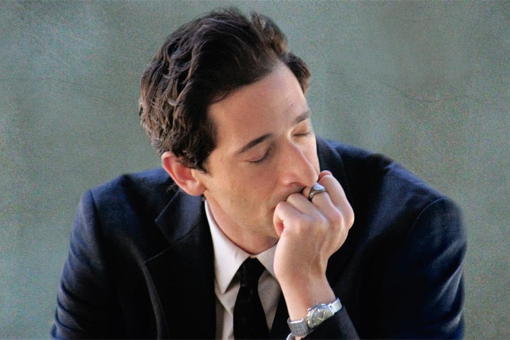By Pam Glazier · March 19, 2012

Detachment is an amazing film. It hits home on so many levels that it takes your breath away. The writing is sharp and poignant, sweet and funny, dark and cynical and (of course) wrenching. The directing is innovative—the cinematic style is crisp and new and visually edgy, and the actors’ performances are powerful. And despite all the feeling of new about this film, there is also a feeling of old-school auteur. Because none of all of the bells and whistles just previously mentioned detract from the narrative through line of the story. In fact, they bolster it.
The story begins with a hazy memory of a woman leaving a tape for someone named Henry. Then there are a series interviews with teachers expressing their dissolution with the profession. One of these teachers is Mr. Henry Barthes (Adrien Brody). Henry explains in his constant baseline of sorrow that most of the teachers used to believe that they could make a difference and that there is immense value in having someone act as a nurturing guide through the confusion and alienation that is childhood. Then he explains that he never had that.
The everyday narrative is catalyzed by a teacher who calls in sick. Henry is hired on for a month long assignment to sub a high school English class. Henry’s story line is a sort of spotlight that ends up reflecting light onto the other characters that he interacts with. We see glimpses of the other teachers, the students, a local runaway, Henry’s grandpa. Some of the characters interact with each other, some of them don’t—but all of them are somehow bound both together and away from each other at the same time. It’s a feeling of disconnection, of passing the buck. It’s a feeling that resonates. The helpless bottled rage we all carry in the face of being unseen and not understood.
One of Henry’s students is a fat girl. This is a terrible problem for her because while she is definitely seen, it is only for her size. She is called a fat bitch and laughed at. No one takes the time to discover her. Even her father rails against her Emo-photography projects and her “ugliness.” And it seems as if the normal sound in her head would be a buzz of hate, the echoes of the day that still remained.
The principal of Henry’s school is being blamed for low test score performance and she is told that it’s only a matter of time before she loses her job. Never mind the fact that all of the district’s lowest performing kids get transferred to her school, so they are working against a bigger handicap than the rest are.
There are more of these side narratives that weave in and out of the greater narrative arc of Henry in order to serve as illustrations of his view. Henry attempts to guide and foster these kids in a world where parents are tuned out and the schools are hog-tied. He is, in essence, taking up arms against a sea of troubles; and he is trying, moment by moment, to end them through his opposition.
But mangled Shakespeare aside, I don’t want to give too much of this film away. It is so moving. It should be seen with a clear aspect. Watch it and have a conversation about it. This film is rich like good art is rich, simply because it is good art.